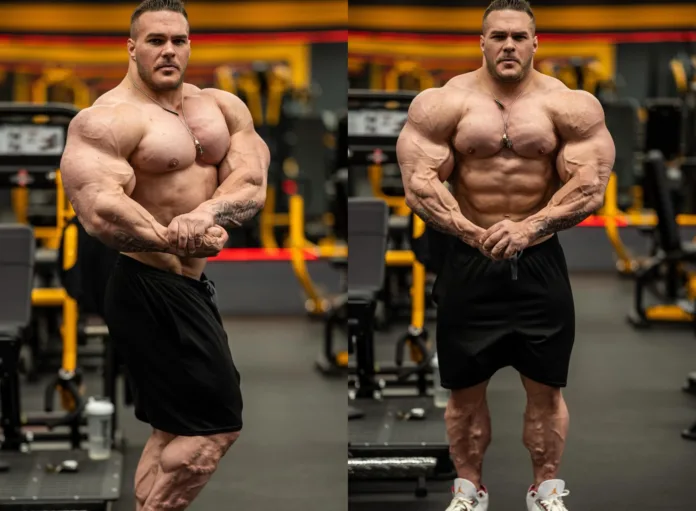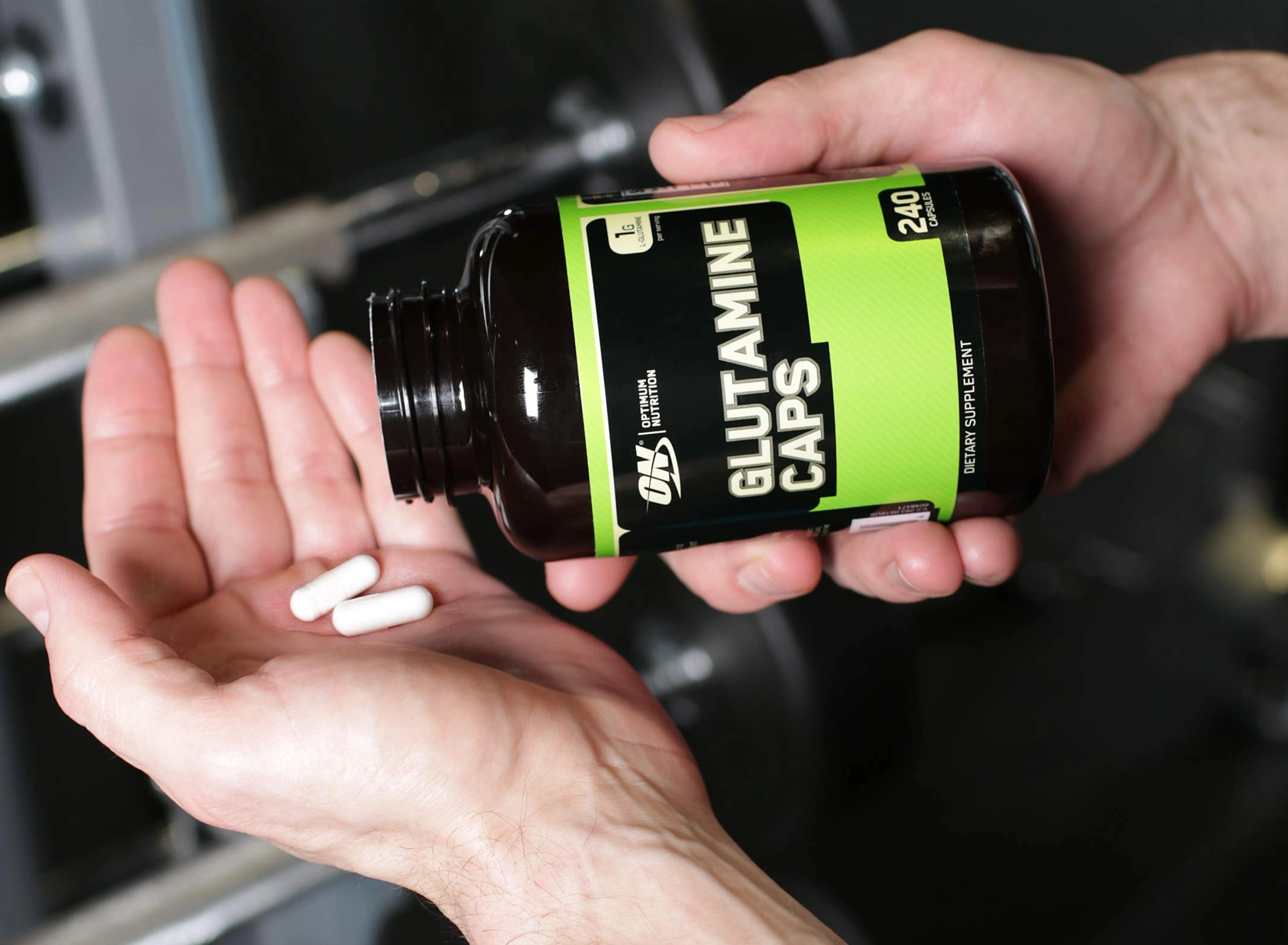In general, most people can expect to see noticeable muscle growth within 6-12 weeks of starting a strength training program and eating a healthy diet. However, it is important to be patient and consistent with your workouts and diet in order to see the best results.
Most individuals gain 1-2 pounds of lean muscle per month with the right strength training and nutrition plan. However, it is important to note that this is just a general guideline. Some people may gain more or less muscle, depending on the factors listed above.
Building muscle is a popular goal for many people, whether it’s for strength, athletic performance, or aesthetics. Muscle plays an important role in life and helps maintain physical function as we age. All healthy adults should consider ways to build more muscle or maintain the muscle they have for overall health. But many people want to know – how long does it take to build muscle?
The short answer? There’s no shortcut to building muscle. If you want more, it’s going to take time, work, and discipline. Let’s break things down (literally in some ways) to get an idea of the importance of muscle, what’s happening to your body during the process of building muscle, and the timeframe or rate of muscle gain you should expect.
Why Muscle Matters
There are three main types of muscle in the body: cardiac, skeletal, and smooth muscle. Cardiac and smooth muscles control involuntary functions such as breathing, digesting food, and pumping blood throughout the body. The type of muscle that we want to focus on is skeletal muscle.
Skeletal muscle is largely controlled by voluntary action and is what helps your body to move. Building muscle doesn’t always mean “bigger” muscle. In respect to exercise, new muscle that is built by the body can be stronger or “adapted” to respond better to future exercise bouts without growing appreciably larger. However, building bigger muscle is a goal for many, and the technical term for it hypertrophy.
Acute hypertrophy is what some may experience during a single exercise bout also known as the muscle ‘pump.’ This results from localized fluid accumulation in the muscle and only lasts a few hours to a few days. This is not considered true hypertrophy, although it can signal longer-term muscle growth duration or chronic hypertrophy. Chronic hypertrophy is an increase in muscle fiber size, which reflects actual structural changes in muscles.
Did you know? There are approximately 640 muscles in the human body.
 Break Down Muscle To Build Muscle
Break Down Muscle To Build Muscle
In respect to exercise, and more specifically resistance or weight training, there are three main mechanisms that can “signal” the body to build new, larger muscle (hypertrophy) – mechanical tension, muscle damage, and metabolic stress. What we want to focus on here is muscle damage or muscle protein breakdown.
Muscle protein breakdown occurs in response to exercise. This is normal. Micro-tears in muscle may occur as a normal response to very intense or prolonged exercise. Micro-tears (literally meaning microscopic at the individual muscle fiber level) are an important stimulus for muscle growth. Adequate recovery time and proper nutrition are also very important for muscle recovery – so it’s important to allow muscles adequate time to recover. Most often people tend to think muscle recovery only happens in the hour or so immediately after an activity, but muscle recovery is actually a 24-hour process that can take up to several days and differs by person and activity. The amount of time needed for muscle to recover depends on your body, your exercise experience level, the type of physical activity, duration, and intensity.

Check Out Our List Of The Best Supplements For Building Muscle, Shredding Muscle, Recovery, And Great Health, and Wellness Products! Purchase IFBNewsfeed.Org‘s Apparels Here: IFBNewsfeed.Org
Timeframe For Muscle Building
There are many factors that can affect muscle growth such as age, gender, genetics, nutrition, exercise intensity, and frequency. In general, it can take several weeks to several months to see noticeable muscle growth. The exact time frame depends on your starting point and the effort you put in. While you may see rapid growth in the mirror and in how your clothes fit in the first few weeks and months, as your body becomes more adapted to your workout routine, the rate of muscle growth may slow down. It’s important that your strength training program is progressive as your muscles will adapt to the training stimulus.
As the saying goes… good things come to those who weight! Get it?
Nutrition To Help Build Muscle
- Protein: Consuming enough protein is necessary to provide your muscles with the building blocks they need to grow. Aim for 1.5-2.4 grams of protein per kilogram bodyweight per day across several meals and snacks.
- Carbohydrates: Help to fuel your muscles during training. They are also protein-sparing, meaning when glycogen stores are depleted, the body will break down muscle and fat stores for energy. Consuming adequate amounts of carbohydrates helps attenuate muscle breakdown.
- Dietary Fat: Provide the building blocks for hormone synthesis.
- Calories: Adequate calories are needed to help support muscle growth. Individuals with a severe calorie deficit cannot optimally support muscle mass maintenance or growth. It’s important to understand your personal needs and adjust as needed to maintain a calorie surplus. In general, a calorie surplus of 10% to 20% over your maintenance calories is a good place to start in order to support hypertrophy.
 Supplementing Your Diet
Supplementing Your Diet
Always aim for a food-first approach. Individuals with strength training and/or muscle goals require protein for muscle growth and recovery. Aim for 20-40 grams per meal or snack. If needs are unmet through food alone, then protein supplements can help you reach protein needs and fill nutritional gaps.
- Optimum Nutrition Gold Standard 100% Whey
- Post-workout muscle support and recovery
- 24 grams of protein per serving to help build and maintain muscle
- Optimum Nutrition Serious Mass
- Supports muscle building and weight gain goals
- 50 grams of protein per serving to help build and maintain muscle
- 1,250 calories per serving to help boost calorie intake
- A1Supplements.com – Lose Fat, Gain Muscle!
Consuming protein alone doesn’t equal more muscle or increased strength. Building muscle works on a timeline of weeks, months, and even years depending on a number of factors. While the exact timeline for muscle growth varies from person to person, consistently following a strength-training program and proper nutrition plan can help you reach your muscle-building goals.
If you are serious about building muscle, you may also want to consider working with a personal trainer who can help you create a personalized workout routine and diet plan.
More Building Muscle Contents
- Legs Assault: “The 10 Best Leg Exercises” For Building Muscle And Strength
- The “10 Best And Effective Bodyweight Exercises” For Building Muscle And Physical Strength
- Building Muscle Doesn’t Require “Lifting Heavy Weights”. It Requires “To pump Iron” Until You Reach Muscle Fatigue

- $5.95 Ground Shipping On Any Purchase In The US! – Shop Now!
- Free Shipping on US orders over $49 USD and 5 lbs or less at eVitamins.com!
For More News And Daily Updates, Follow IFBNewsfeed.Org on Facebook, Twitter, and Instagram. Comment, Like, And Share With Everyone Who May Need To Be Updated With The Most Recent Fitness/Bodybuilding/Powerlifting And CrossFit News.



















































